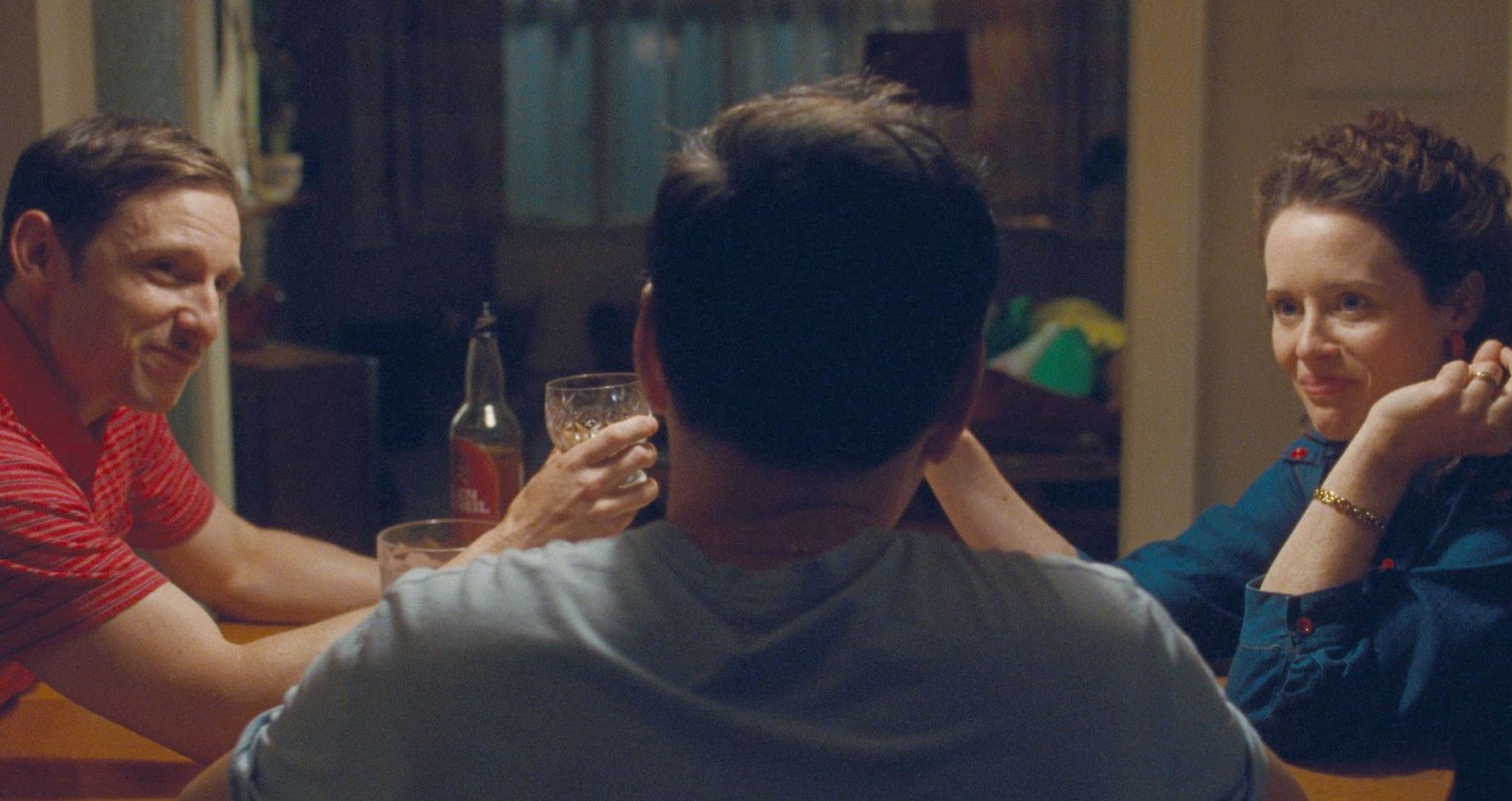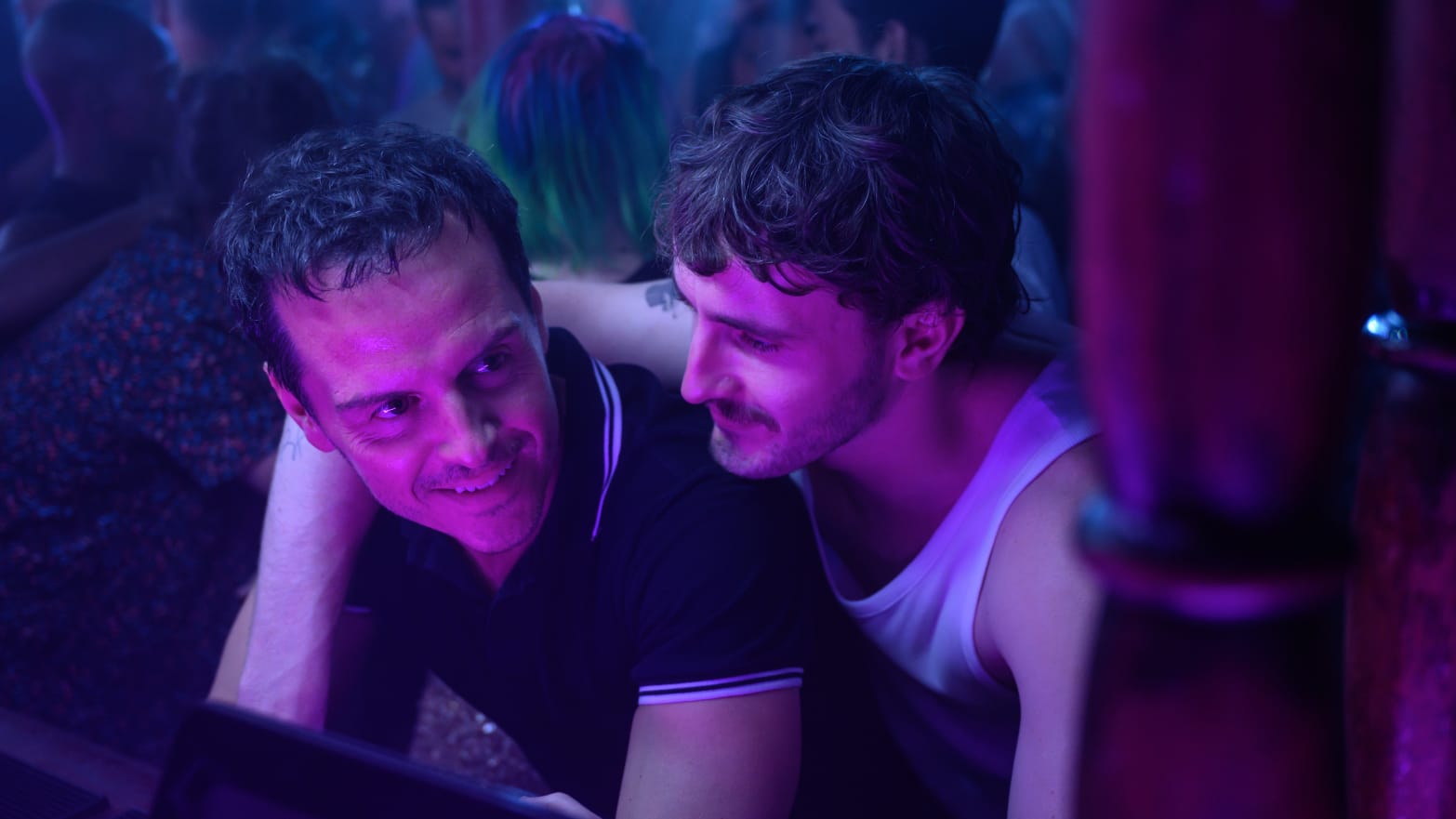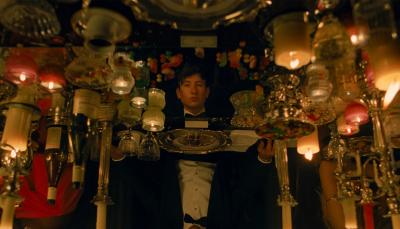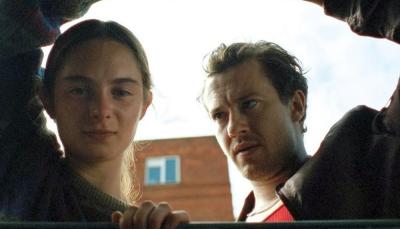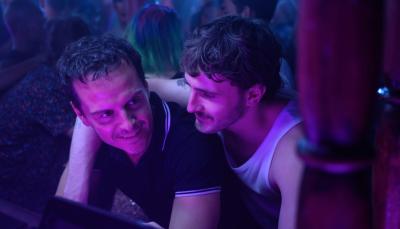'All of Us Strangers' is a Visually Gorgeous Paean to Grief, Acceptance & Love
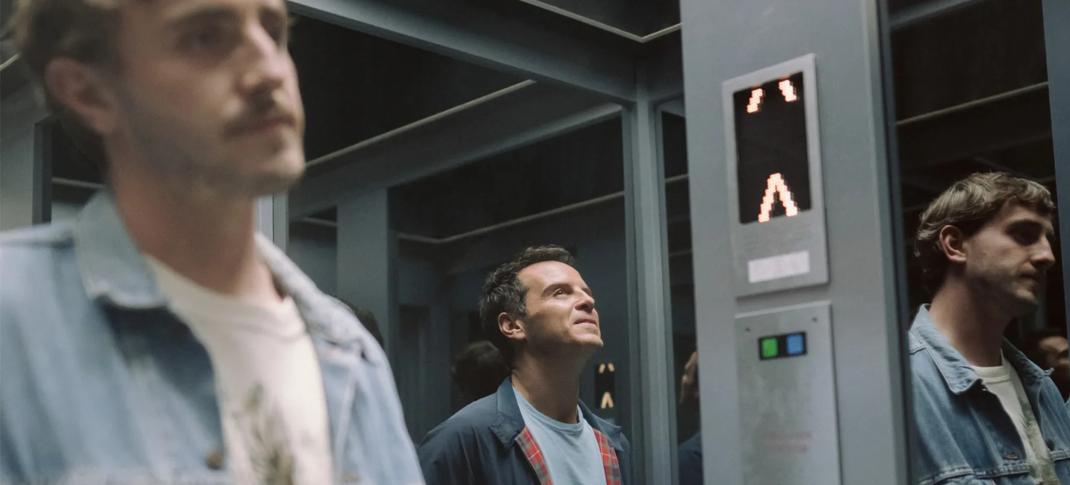
Paul Mescal as Harry and Andrew Scott as Adam in 'All of Us Strangers'
Searchlight Pictures
With All of Us Strangers, Andrew Haigh (Weekend, Looking) has made a film that’s about a few things. Foremostly, it’s about ghosts – literal ghosts, but also figurative ones, phantoms created by emotions we don’t know what to do with or feel like forgetting. All of Us Strangers understands it’s difficult to classify the love we feel and even harder to articulate how we lack it. Parents, lovers, companions – we depend on them in ways that, as grief will remind us, are not sustainable, and their absence feels like an impossible calling to return to a different world and body. But also, maybe more importantly, Haigh’s film is also about how London’s New Build apartments may be the most haunted buildings in the country.
Adam (Andrew Scott) is a screenwriter and lonely resident of a sparsely populated apartment building that’s just cropped up in a corner of London. His upper-floor window gives a terrific view of a skyline he feels just on the edge of; Haigh opens the film with Adam’s face looming massive over the city in the reflection of the glass as the sun rises. One of the building’s only other occupants is Harry (Paul Mescal), who one night enters Adam’s life with a knock at his door, a regional English accent, and a cheeky invitation to spend the night together.
After initially rejecting him, Adam and Harry soon sleep together, imbuing the cold, unfeeling building with a sorely lacking passion and intimacy. This strand parallels Adam’s main journey of discovery – he’s drawn back to his childhood home where he finds his thirty-years-dead parents (Jamie Bell and Claire Foy) acting as if they’ve only gone a year or two without seeing each other. Scott’s perfectly observed reaction – careful, hesitant skepticism – shows a sincere yearning for this fantastical homecoming to be real, and thankfully, both he and Haigh treat this reunion like it is. Impossible? Maybe. Imagined? Most likely. But it’s undoubtedly truthful.
Strangers is easily the most visually gorgeous of Haigh's films, which before now have veered ultra-naturalistic in style. That’s not to say it’s a massive departure in aesthetics – his deliberate blocking and patient long takes are instantly recognizable. DNA from his other queer stories is all over Strangers; the camera captures the sparkling chemistry of its leads just like in Weekend, and there's a free-flowing, expressive ecstasy in the extended party sequences that reminds us of the Looking characters dancing to pounding music.
But never has Haigh put so much visible effort into his visual palette, and Strangers teems with lens flares, warped reflections, and in one instance, a powerful spotlight beam shining between – no, through – Adam and Harry kissing. These men make each other electric, and the camera is a witness, potentially even an accomplice, to their newfound, pulsating joy.
When Adam returns to his childhood home, his emotional clarity takes on a different energy. His mum and dad are just how he remembers them from a child, maybe finished off with how he imagined they’d age were they still alive. They comment on his body, his demeanour and feel confronted when they learn of his queerness – but he’s still able to get acceptance and understanding from them.
It’s not that they refused to give them this, but they never got the chance – and the wish-fulfillment happening in Adam’s story is so satisfying it’s addictive. Here, home has been idealized as a place of safety where the errors of the past can be addressed and amended, where everything promises, at least on the surface, to sort itself out and be happy forever. It’s not cloying or over-sentimental, but it does always feel like a fantasy – and fantasies can only ever be temporary.
In attempting to show how fantasy and reality feed into each other, Haigh demonstrates how deft he is at exploring both on screen. The second half may feature a few too many instances of Adam sharply waking up from an emotionally distressing dream, and some last-minute tropes may break some viewers’ suspension of disbelief, but they’re easy blemishes to forgive in a film that adopts ghost story archetypes for such an uncompromisingly queer tale. Adam was denied closeness and acceptance for reasons outside his control, and his disaffection is a perfect jumping-off point for a gentle, modern haunting.
Strangers is breathtakingly moving, conjuring shades of sadness that hurt so much because they’re so loaded with hope, affection, and meaning. It’s a film where every beat of emotion is like a tiny little grief, a mourning for the quiet, potent ways we feel like we’ve failed our own lives or vice versa. It doesn’t matter whose arms you’re in, how distorted your reflection may look, or even which retro pop hit fills your ears – Haigh sees us as a species willing to fantasize, be vulnerable, and risk crushing sadness for any chance to feel alive, whole, yours.

